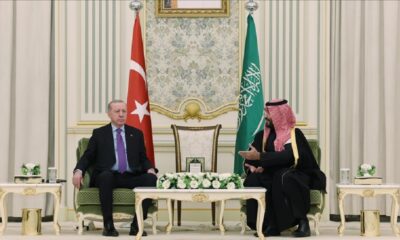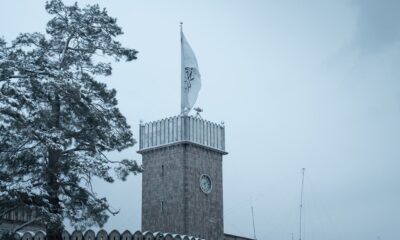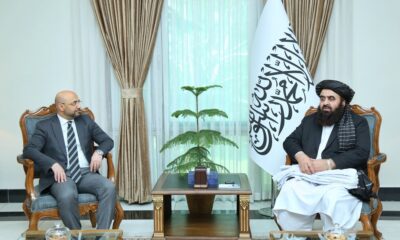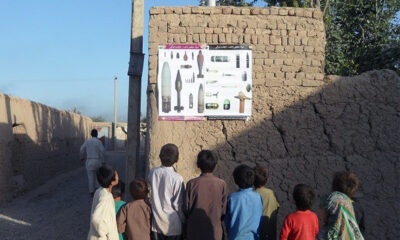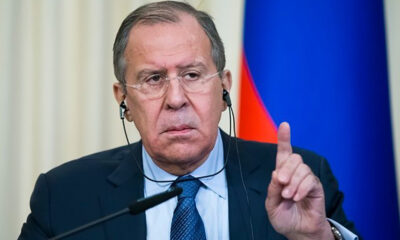Business
Minerals have become integral to conflict in Afghanistan: UNDP
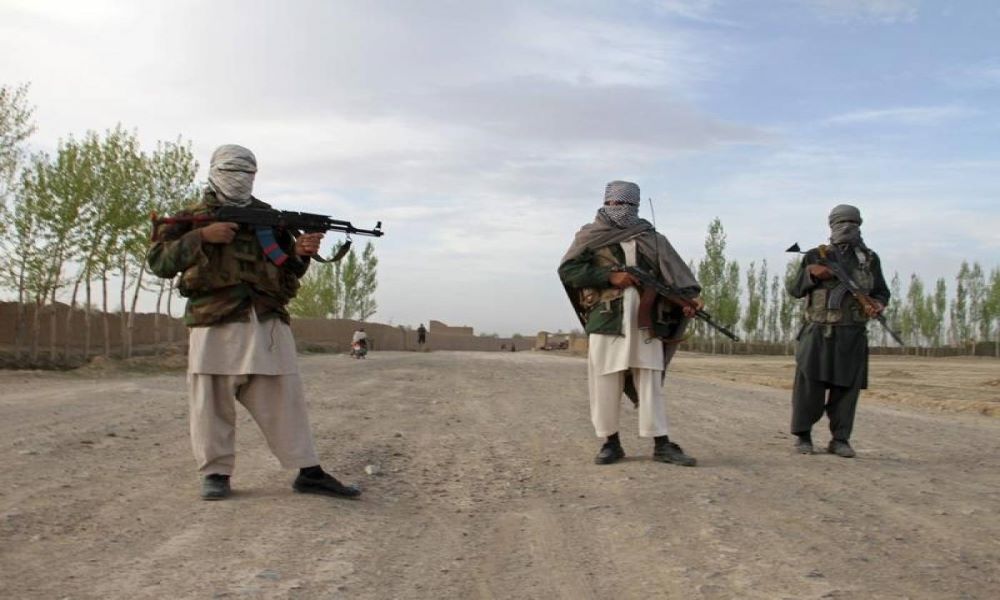
UNDP Afghanistan has found that decades of mining without a clear vision has done little to reduce poverty but has instead helped insurgent groups fund their wars, triggered local conflicts and harmed the environment.
Published on Tuesday, the UNDP’s National Human Development Report 2020 on minerals extraction in Afghanistan states that the country’s minerals extraction is poorly regulated, often illegal, and in many parts of the country is controlled by political elites, and by insurgents.
Based on extensive fieldwork, consultations and discussion, UNDP also found that illegal mining is a complex phenomenon, contributing to insecurity, corruption, human rights violations and conflict that affects the lives of citizens.
Afghanistan is richly endowed with mineral and hydrocarbon resources, which include base and precious metals, precious and semi-precious stones, rare earth elements, mineral rocks and industrial minerals, and energy resources.
At present these contribute little to the economy or society, mainly because they remain in the ground, but also because most of the mining is informal and illegal.
“If the country is to unlock the potential of its mineral wealth, the government and other stakeholders will need to strengthen the management of resources and ensure peace and security,” UNDP stated.
“Unregulated mining feeds and is fed by conflict. It has become the magnet of corrupt individuals and networks, and some mining businesses are implicated in serious human rights violations, often acting with impunity,” read the report.
“In Afghanistan, there is an urgent need to improve governance, tackle corruption and put an end to illegal extraction and trade of minerals,” said Abdallah Al Dardari, UNDP Resident Representative for Afghanistan.
“Large-scale mineral, oil and gas projects can be instrumental for financing development, but it will require stability and enhanced government capacity to get its due share from these projects and use them well for human development,” he added.
The report recommends that all partners implement programs demonstrating good practices, methods and technologies in mining.
Afghanistan’s Minister of Mines and Petroleum Haroon Chankhansuri meanwhile said: “I welcome the release of the report and look forward to our collaboration with UNDP and other partners on the opportunities explored by this report on the potential of economic growth through extractive industries.”
The minister added, “the recommendations on policy choices to ensure people benefit from and participate in extractive industries potential, and mitigating the risks associated with this type of development will be considered in the government’s plans for the sector.”
According to UNDP, the organization’s new programs, Afghanistan Sustainable Development Goals (A-SDGs) and Agenda 2030 is focused on transferring the war economy into a peace economy, and that the extractive sector is a key area for revenue generation and economic growth.
In 2010 the US Task Force for Business and Stability Operations estimated the monetary value of Afghanistan’s mineral resources at nearly $1 trillion.
But, according to the UNDP, since the 1980s, many mines have come to be controlled by networks of former jihadis who, after the defeat of the Taliban, have at different times acquired positions of influence within the government.
These networks often operate with impunity – openly and audaciously smuggling mineral resources out of the country, read the report.
“More recently, with the decline in international aid, and the reduced demand for new buildings, many well-connected construction companies have moved into the mining sector.”
Mining financing conflict
The report also stated mining has been financing conflict and that the control of minerals extraction by insurgent groups has meant that they have been financing and fuelling conflict while undermining the legitimacy of the Afghan government and further spreading corruption and violence.
“The group with the most extensive reach is the Taliban, but since 2015, other groups under the name of Islamic State of Khorasan (IS-K/Daesh) have joined the competition for minerals,” read the report.
For the Taliban, the extractive industry is the second-largest revenue stream after narcotics.
It collects taxes and ‘protection money’ from miners but more recently, the IS-K started tapping the mining sector when financial support waned from the central ISIS branch, the report stated.
One example cited was with talc-rich Nangarhar province where government, Taliban and IS-K actively contested the talc mining areas.
“For a mining company, the benefits of paying taxes to the government are limited, while the risks of not paying taxes to insurgents are enormous,” the UNDP stated adding that IS-K, in particular, is known for brutal sanctions for non-compliance.
“In addition to these groups, local militias, warlords, and occasionally security forces, are also levying taxes on minerals or are involved in illegal mineral extraction – directly or through associates and family members,” the report stated.
The UNDP stated that in areas controlled by insurgents, lucrative large-scale mining sites operate on an industrial scale then openly transport bulk minerals on large trucks along major roads and across the border to Pakistan.
“Governance of extraction is weakened by extensive corruption. Even where mining companies operate legally, there can be corruption in the issue of contracts,” the report stated.
According to UNDP, violations of human rights in regard to minerals extraction was also a problem.
“There have been documented cases of human rights violations by mining companies which are protected by networks of power brokers.”
Afghanistan is one of the world’s poorest countries – held back by decades of conflict but with prospects for peace, there will be greater opportunities for investing in human development.
The UNDP stated however that this will require taking full advantage of the country’s mineral resources.
“But it will require a determined and concerted effort to reform the country’s policies and institutions governing these resources. The ultimate objective of minerals extraction in Afghanistan should be sustainable human development and improvements in people’s well-being.”
CLICK HERE for the full report
Business
Afghanistan seeks expanded ties with Russia in energy, mining and infrastructure
TASS reported that Kabul is also prepared to cooperate with Moscow in the extraction of mineral resources.

Afghanistan has expressed strong interest in broadening trade and economic cooperation with Russia, with a particular focus on energy, mining and infrastructure projects, according to Russia’s TASS news agency.
In an interview with TASS, Afghanistan’s Ambassador to Moscow, Gul Hassan, said Kabul is keen to import oil and gas from Russia as part of efforts to deepen bilateral economic ties.
He noted that trade relations between the two countries are progressing and that, if key obstacles—especially banking restrictions—are addressed, Afghanistan could also import medicines, industrial goods, grain, vegetable oils and other commodities from Russia.
In return, the ambassador said Afghanistan is ready to export fresh and dried fruits, vegetables, medicinal plants, carpets and mineral resources to the Russian market, adding that expanding export-import operations could significantly increase bilateral trade volumes.
He also revealed plans to open an exhibition of Afghan products in Moscow, which he said would help boost trade turnover.
TASS reported that Kabul is also prepared to cooperate with Moscow in the extraction of mineral resources.
Hassan described the economy as a central pillar of Afghanistan’s foreign policy, emphasizing the government’s goal of positioning the country as a key link in regional economic integration and attracting foreign investment.
He noted that Russian companies have long shown interest in Afghanistan’s industrial, mining and infrastructure sectors.
The ambassador further told TASS that Russian firms are already in talks with relevant Afghan authorities on the construction of small hydroelectric power plants.
Representatives of several Russian companies have reportedly visited Afghanistan and held meetings with officials and technical experts.
According to Hassan, practical steps toward cooperation in the energy and power generation sectors are expected in the near future, pointing to a potential new phase in Afghan-Russian economic relations.
Business
Pakistan, China plan to extend CPEC to Afghanistan, revive trilateral framework
The proposed CPEC expansion into Afghanistan is seen as a move to enhance regional economic integration amid shifting geopolitical dynamics.
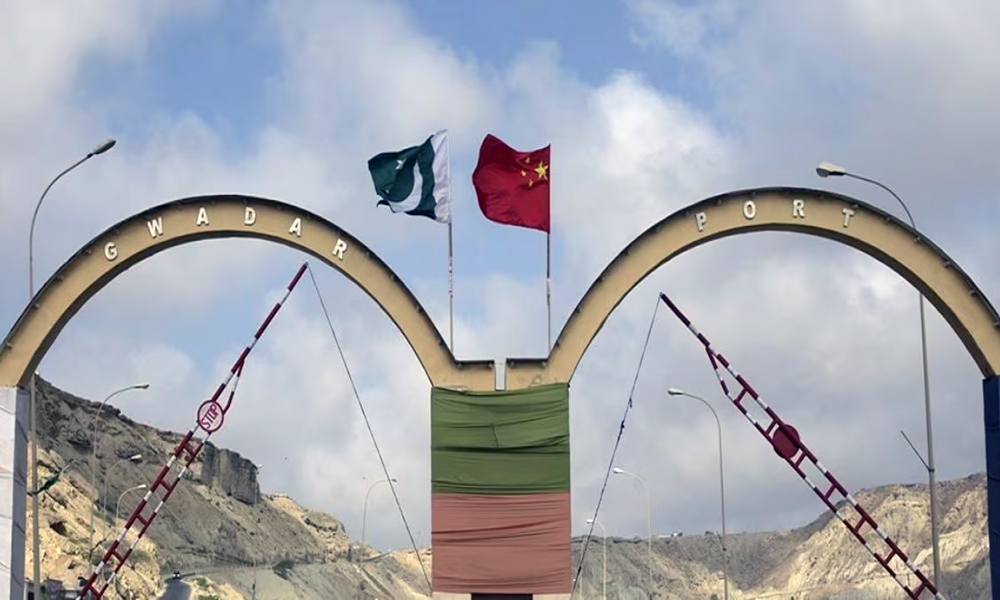
Pakistan and China are moving forward with plans to extend the China-Pakistan Economic Corridor (CPEC) into Afghanistan, a strategic step aimed at bolstering regional connectivity and economic cooperation. The expansion, along with the revival of the Pakistan-China-Afghanistan trilateral framework, was discussed in a recent briefing to the Pakistani Senate Standing Committee on Foreign Affairs.
According to Pakistan Today, officials from Pakistan’s Ministry of Foreign Affairs outlined the details during a session in Islamabad, where they reviewed key aspects of Pakistan’s foreign relations, regional developments, and economic diplomacy.
Officials emphasized that Pakistan’s relationship with China remains strong, underscoring the “all-weather” strategic partnership between the two nations. Strengthening ties with Beijing, they stated, continues to be a cornerstone of Pakistan’s foreign policy. This includes unwavering support for China’s position on regional and international issues, particularly the One-China policy and matters related to territorial integrity.
The briefing also touched upon China’s consistent backing of Pakistan in various areas, including sovereignty, economic stability, counter-terrorism, and support for Pakistan’s exit from the Financial Action Task Force (FATF) grey list.
The Kashmir issue was also addressed, with officials noting that China considers it an unresolved matter and advocates for a peaceful resolution in line with UN Security Council resolutions.
The proposed CPEC expansion into Afghanistan is seen as a move to enhance regional economic integration amid shifting geopolitical dynamics. Officials stated that reviving the trilateral framework is part of broader efforts to foster greater cooperation and connectivity in the region, with an eye on long-term stability and prosperity.
The move also reflects both countries’ desire to further integrate Afghanistan into the regional economic landscape, a key element in fostering peace and development.
Business
Uzbekistan–Afghanistan trade rises to $1.6 billion in 2025
Trade relations remain largely export-driven, with Uzbekistan supplying Afghanistan primarily with food products, energy resources, and industrial goods.
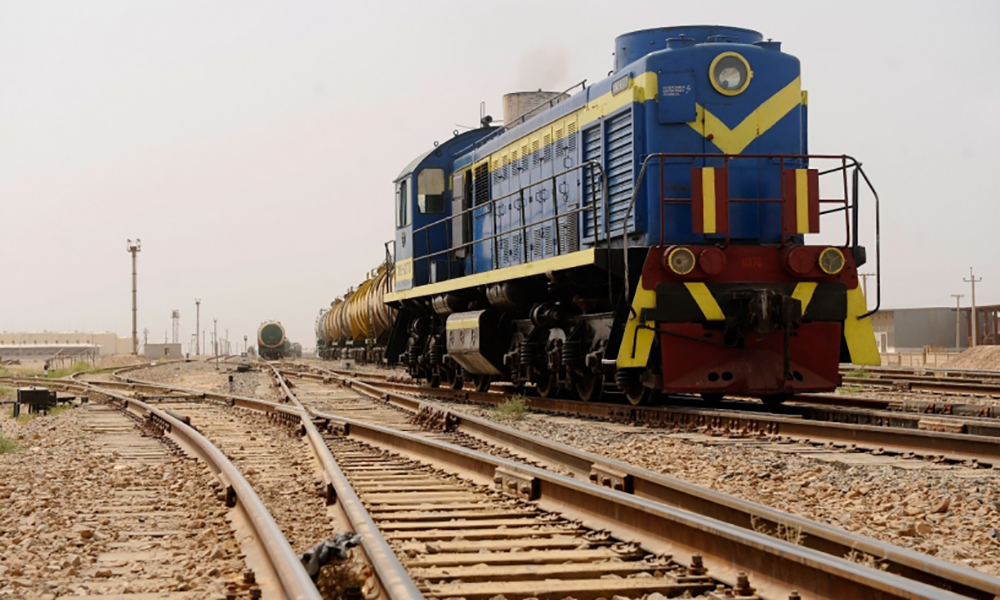
Trade between Uzbekistan and Afghanistan rose sharply in 2025, reaching $1.6 billion, according to official data released by Uzbekistan’s National Statistics Committee.
The figure represents a 45.5 percent increase from $1.1 billion in 2024 and an 84.4 percent rise compared with 2023, when bilateral trade stood at $867.5 million, highlighting rapid growth in economic exchanges between the two countries.
Uzbekistan’s exports to Afghanistan accounted for the vast majority of the trade volume, totaling $1.5 billion, or 93.8 percent of overall bilateral turnover. Trade relations remain largely export-driven, with Uzbekistan supplying Afghanistan primarily with food products, energy resources, and industrial goods.
The surge in trade comes as Uzbekistan’s total foreign trade turnover reached $81.2 billion in 2025, reflecting broader efforts to expand and diversify external economic ties. By the end of the reporting period, Uzbekistan maintained trade relations with 210 countries.
China remained Uzbekistan’s largest trading partner, accounting for 21.2 percent of total trade, followed by Russia (16.0 percent), Kazakhstan (6.1 percent), Türkiye (3.7 percent), and the Republic of Korea (2.1 percent).
The latest figures underscore strengthening economic ties between Uzbekistan and Afghanistan amid efforts to boost regional trade and connectivity.
-

 Sport2 days ago
Sport2 days agoAFC Futsal Asian Cup: Afghanistan to face Iran in crucial Group D clash
-

 Sport4 days ago
Sport4 days agoAfghanistan dominates Malaysia 7–0 in AFC Futsal Asian Cup
-

 Sport3 days ago
Sport3 days agoT20 World Cup 2026: Afghanistan national cricket team arrives in India
-

 Sport1 day ago
Sport1 day agoAFC Futsal Asian Cup 2026: Final eight confirmed
-
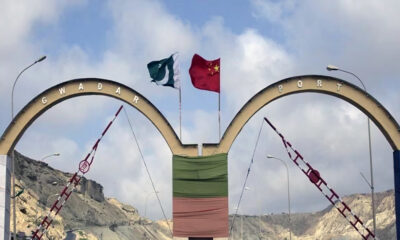
 Business3 days ago
Business3 days agoPakistan, China plan to extend CPEC to Afghanistan, revive trilateral framework
-
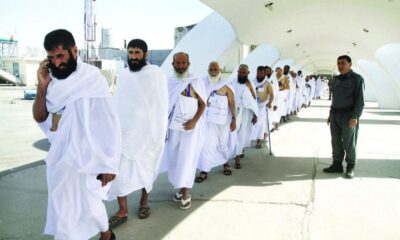
 Latest News3 days ago
Latest News3 days agoAfghanistan granted 30,000 Hajj quota for 2026
-

 Sport4 days ago
Sport4 days agoAfghanistan roar into U19 World Cup 2026 semis after defeating Ireland
-
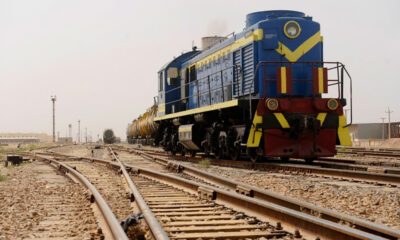
 Business4 days ago
Business4 days agoUzbekistan–Afghanistan trade rises to $1.6 billion in 2025


